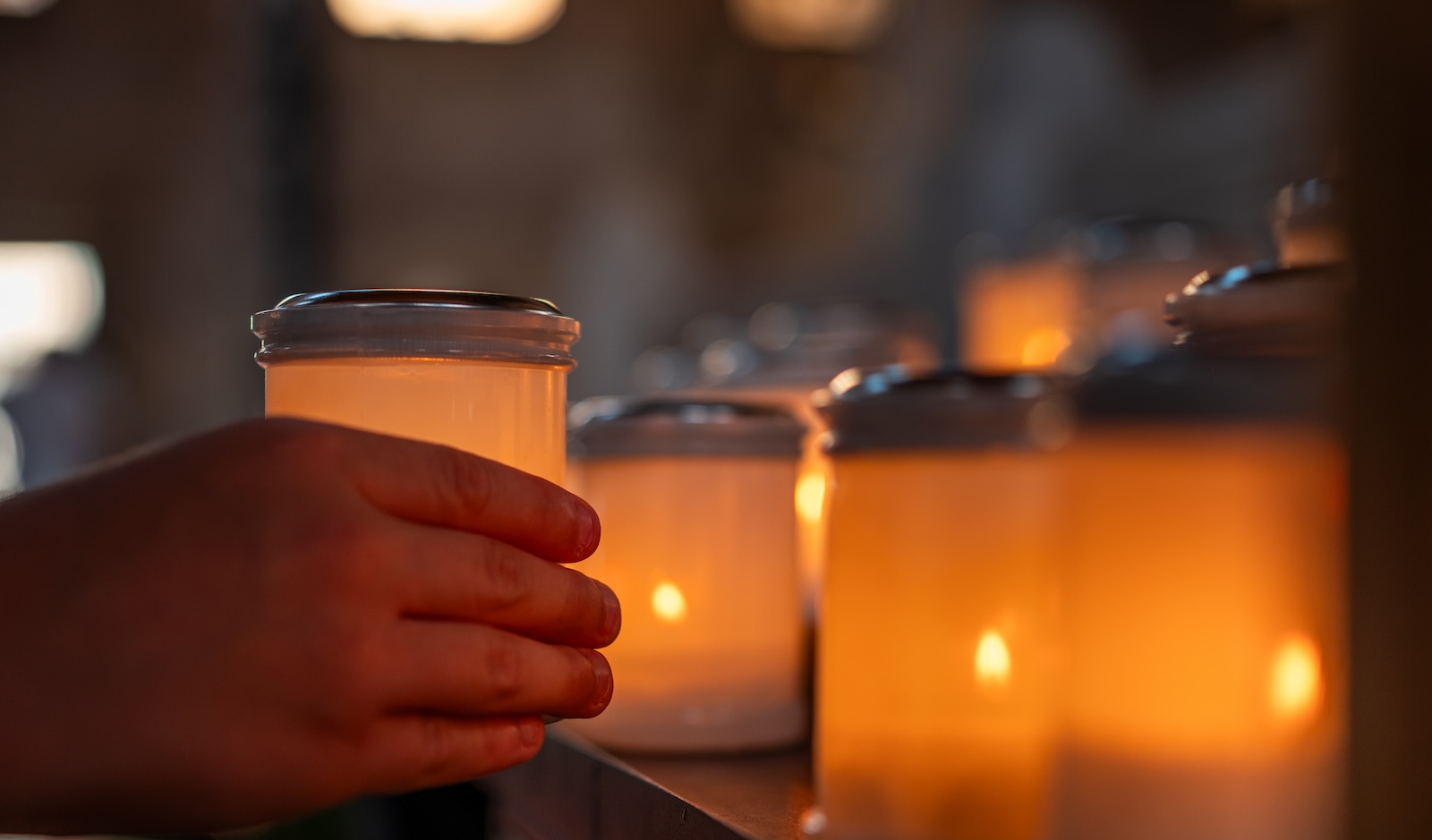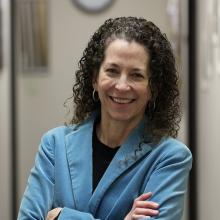Coping with Grief During the Holiday Season
Baylor experts suggest three strategies to help cope with grief during the holidays

(Image Credit: D-Keine/Getty Images)
Contact: Shelby Cefaratti-Bertin, Baylor University Media & Public Relations, 254-327-8012
Follow us on Twitter: @BaylorUMedia
WACO, Texas (Dec. 21, 2023) – The holidays are typically a time of joy and celebration for most people, but this time of year can be very different for grieving people. The death of a loved one can be especially hard during the holidays as they are full of memories, traditions, and sensations associated with the holidays – all reminders that this year is different, and someone is no longer here. What can someone in the midst of grief do to make this time more positive and step toward emotional healing?
William (Bill) G. Hoy, D.Min, FT., clinical professor and associate director of Medical Humanities, and Candi Cann, Ph.D., associate professor of religion in the Honors College at Baylor, suggest three strategies for grieving people to cope with their loss during the holidays.
“Holidays are also hard in grief because they are built around relationships,” Hoy said. “Family gatherings cannot ever be the same, and, of course, memories of bad relationships cause us to realize the past cannot be changed.”
Acknowledge your pain
The first step is to admit the pain of grieving. “Saying goodbye to a loved one is no easy task, and, undoubtedly, it feels different than you could ever have expected,” said Hoy.
Cann pointed out that some deaths bring about complicated grief if the loss is from a difficult relationship. “It is okay to feel relief in addition to grief and it is important to validate all of your feelings – it’s a complicated grief because it was a complicated relationship.”
Hoy said that culturally people tend to try to get around the pain without facing it, which only makes it harder later on. “There is an empty chair at the table on this special occasion. The grief following a death assault at every turn with the reality that they will not be returning to the table. Because holiday grief is so painful, there is no need to try to escape the pain this holiday season.”
Take care of yourself
Self-care is vital during this time, said Cann. She encourages grieving people to stay active, eat healthy, go outside to be in nature and get enough sleep.
“It’s totally normal to need more sleep when you're depressed and grieving, you just have to be gracious with yourself about that,” she said.
Hoy added, “Remember that grief is very tiring and - even under the best of circumstances - holidays are very taxing.” Give yourself permission to turn down invitations or leave parties early.
In addition to taking care of your physical health, Cann recommends staying engaged in your community or church. “Being in community with others is very beneficial for your mental health.” At the same time, be honest with yourself about what you want to do and only accept invitations or participate in activities that you feel you can handle, said Hoy.
Evaluate traditions and embrace memories
When the holidays arrive, many people want to change everything about the holidays to avoid the sad feelings, said Hoy. Both he and Cann suggest evaluating family traditions, choosing those traditions that are most important to continue and including the dead through new traditions.
“Don't forget to embrace your memories of past holidays and special events as you face this season,” Hoy said. “We cannot have things like they were, but we can hold in our hearts the memories of days gone by. You may want to light a special candle or purchase a special holiday decoration and hang it in your loved one's memory.”
“A lot of people feel like when that person is gone, the love is gone too, but the love is still there,” Cann said. “You wouldn't feel the grief or the big hole that you now have if you didn't have all of this love in the first place.” She suggests embracing their presence by including a place at the table for Christmas dinner, making their favorite recipe or many other ways to continue the bonds and positively remember the dead in your life. By doing these things, “you're including them in your conversation, and you're making space for that person, both literally and symbolically.”
How to support someone who is grieving
Being supportive of someone grieving requires patience and vulnerability. “Engage with the person and ask how you can best support them,” Cann said. “And let them know that you are thinking about them during this time.”
“A lot of people don't want to bring it up because they don't want to make people sad at a joyful time,” Cann said. “But the point is, they already are sad, so bringing it up allows them to express it” and feel accepted in their pain. Hoy said to remember that there is no set timeline for an individual grief journey.
It is also important to remember that not all grief is related to death. There are many types of loss that people experience such as divorce or disease. We can’t decide or predict what defines another person's grief, but we can offer love and support.
Approaching the holidays when experiencing grief over the death of someone or a deep loss may be painful at first, but using these strategies can help us face the future by celebrating with gratitude what we had in the past.
ABOUT CANDI CANN, PH.D.
Candi K. Cann, Ph.D., associate professor of religion, teaches in both the Baylor Interdisciplinary Core (BIC) in the Honors College and the Department of Religion. Her research focuses on death and dying, and the impact of remembering (and forgetting) in shaping how lives are recalled, remembered and celebrated. Her scholarly work also includes two monographs, two edited collections, and numerous articles and book chapters. Cann recently received a Fulbright U.S. Scholar Award, a prestigious and competitive fellowship of the Department of State’s Bureau of Educational and Cultural Affairs, to teach and conduct research in South Korea in 2023 as the first Fulbright Scholar at Han Nam University, and she is the Director of Baylor in Korea.
ABOUT WILLIAM G. HOY, DMin, FT
With more than 35 years of care for the dying and bereaved, William G. (Bill) Hoy is Clinical Professor of Medical Humanities at Baylor. He is a widely regarded expert on the role of social support in death, dying and bereavement with almost 40 years of clinical experience and pastoral care programs in hospice care. Though primarily a bedside clinician, Dr. Hoy has authored more than 125 articles and book chapters as well as six books. Hoy is active in the Association for Death Education & Counseling on whose board he served from 2012 to 2020 including six years as an officer. He also holds advisory board positions with Our House Grief Support Center in Los Angeles, CA, Pathways Volunteer Hospice in Long Beach, CA, and the Tragedy Assistance Program for Survivors (TAPS) in Washington, DC.
ABOUT BAYLOR UNIVERSITY
Baylor University is a private Christian University and a nationally ranked Research 1 institution. The University provides a vibrant campus community for more than 20,000 students by blending interdisciplinary research with an international reputation for educational excellence and a faculty commitment to teaching and scholarship. Chartered in 1845 by the Republic of Texas through the efforts of Baptist pioneers, Baylor is the oldest continually operating University in Texas. Located in Waco, Baylor welcomes students from all 50 states and more than 100 countries to study a broad range of degrees among its 12 nationally recognized academic divisions.
ABOUT THE COLLEGE OF ARTS & SCIENCES AT BAYLOR UNIVERSITY
The College of Arts & Sciences is Baylor University’s largest academic division, consisting of 25 academic departments in the sciences, humanities, fine arts and social sciences, as well as 11 academic centers and institutes. The more than 5,000 courses taught in the College span topics from art and theatre to religion, philosophy, sociology and the natural sciences. The College’s undergraduate Unified Core Curriculum, which routinely receives top grades in national assessments, emphasizes a liberal education characterized by critical thinking, communication, civic engagement and Christian commitment. Arts & Sciences faculty conduct research around the world, and research on the undergraduate and graduate level is prevalent throughout all disciplines. Visit the College of Arts & Sciences website.
ABOUT THE HONORS COLLEGE AT BAYLOR UNIVERSITY
The Honors College at Baylor University unites four innovative interdisciplinary programs – the Honors Program, University Scholars, Baylor Interdisciplinary Core and Great Texts – with a shared commitment to providing undergraduate students the opportunity to pursue questions that often fall between the cracks of the specialized disciplines by investigating the writings of scientists along with the writings of poets, historians and philosophers. For more information, visit the Honors College website.
